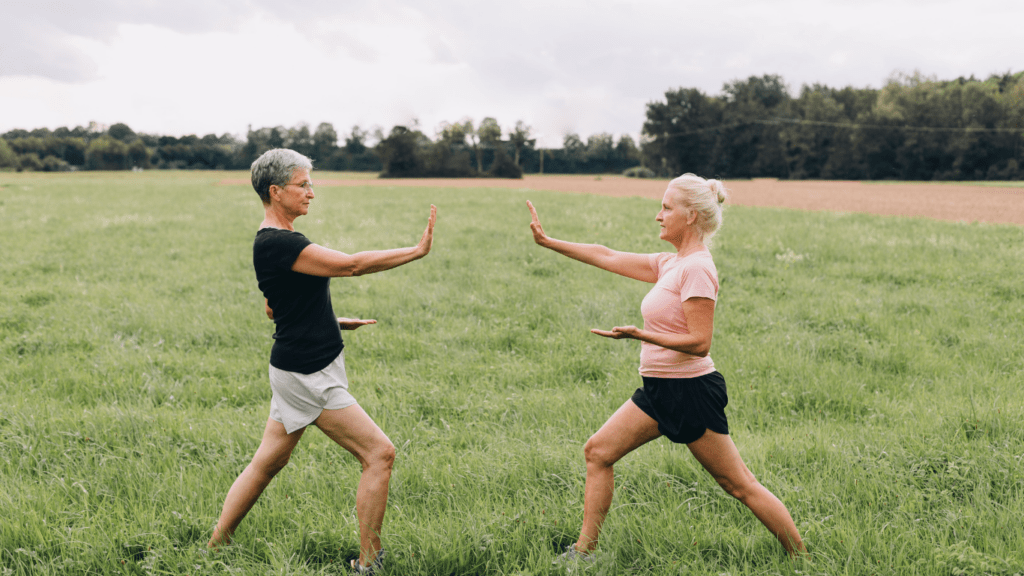Understanding Holistic Health Practices
Holistic health practices focus on treating the entire individual rather than just addressing specific symptoms. They emphasize the interconnectedness of the body, mind, and spirit to promote overall well-being. This approach contrasts with conventional medicine, which often isolates and treats individual symptoms without considering underlying causes.
Holistic practices include a wide range of therapies and treatments. Examples are acupuncture, herbal medicine, yoga, and meditation. Acupuncture involves inserting fine needles into specific points on the body to balance energy flow. Herbal medicine relies on natural plant extracts to support health and treat illnesses. Yoga combines physical postures, breathing exercises, and meditation to enhance physical and mental health. Meditation practices help reduce stress, improve focus, and promote emotional stability.
Recent technological advancements are enhancing these holistic methods. For example, digital acupuncture uses electronic devices to stimulate acupuncture points without needles. AI integration in personalized wellness plans tailors diet, exercise, and stress management strategies to an individual’s unique needs, improving efficacy.
Holistic health practitioners often adopt a multi-disciplinary approach. Nutritionists, mental health therapists, and physical therapists work together to create comprehensive treatment plans. This collaborative effort ensures that all aspects of health are addressed, leading to more sustainable outcomes.
These practices are gaining popularity as people seek alternatives to conventional treatments. A growing body of research supports the effectiveness of holistic methods in managing chronic conditions, improving mental health, and enhancing quality of life. As public interest increases, holistic practices are becoming more accessible and integrated into mainstream healthcare.
Understanding holistic health practices involves recognizing their focus on overall well-being. It’s about balancing physical, emotional, and spiritual health to achieve optimal wellness. By considering the person as a whole, these practices offer a comprehensive approach to health and healing.
Integrative Approaches in Holistic Health
Integrative health practices combine different methods to create comprehensive wellness strategies. By merging traditional and contemporary treatments, these approaches address multiple aspects of health.
Combining Traditional and Modern Medicine
Integrative medicine blends traditional remedies with modern medical practices. It incorporates techniques like acupuncture and herbal therapies along with conventional treatments. For instance, patients with chronic pain might use acupuncture to complement medication prescribed by their doctors. This combination aims to enhance overall treatment effectiveness. Peer-reviewed studies confirm the benefits of such integrative methods, particularly in pain management and chronic disease treatment.
Role of Nutrition and Diet
Nutrition plays a crucial role in holistic health. Personalized diet plans, created by nutritionists, support overall well-being by addressing individual dietary needs. For example, anti-inflammatory diets can help manage conditions like arthritis. Whole foods, lean proteins, and healthy fats are essential components of a balanced diet. Nutritional supplements may also be recommended to address deficiencies. Research highlights that proper nutrition positively affects mental health, energy levels, and immune function.
Advances in Mind-Body Practices
Advancements in holistic health have significantly included mind-body practices. Techniques such as meditation, mindfulness, yoga, and Tai Chi are evolving to offer enhanced benefits.
Meditation and Mindfulness Techniques
- Innovative meditation methods are incorporating digital tools.
- Apps like Headspace and Calm provide guided sessions, tailored to individual needs.
- Neurofeedback is another advancement, using real-time brain activity data to optimize meditation practices.
- Research shows consistent meditation reduces stress by 30% and improves focus significantly.
- Mindfulness-Based Stress Reduction (MBSR) programs are increasingly adopted in clinical settings.
These programs help manage chronic pain and mental health issues by fostering a non-judgmental awareness of the present moment. Studies cited by the National Institutes of Health indicate MBSR programs reduce anxiety by 40%.
Yoga and Tai Chi

Yoga practices have expanded through virtual platforms, making sessions accessible globally. Interactive online classes mimic in-person experiences, accommodating all skill levels. Hybrid yoga combines traditional poses with modern fitness techniques, enhancing flexibility and strength.
Tai Chi has seen an increase in popularity due to its adaptability and low-impact nature. Virtual reality (VR) Tai Chi offers immersive experiences that promote better balance and coordination. The Harvard Medical School reports that Tai Chi can improve balance and reduce falls in older adults by up to 45%.
Advanced research and technology integration in mind-body practices continue to make holistic health accessible and effective.
Emerging Natural Therapies
Emerging natural therapies in holistic health practices are transforming the way we approach well-being. These therapies focus on enhancing the body, mind, and spirit connection with nature’s resources.
Herbal Medicine
Herbal medicine harnesses the power of plants for therapeutic purposes. With advancements in research, scientists have identified specific compounds in herbs that provide medicinal benefits. For example, studies have shown turmeric’s active compound, curcumin, possesses anti-inflammatory and antioxidant properties.
Innovations in extraction techniques ensure higher purity and potency of herbal supplements. Evidence-based applications of herbal medicine, such as using Echinacea for immune support and St. John’s Wort for mood regulation, are gaining mainstream acceptance. Certified herbalists provide personalized consultations, integrating these potent remedies with traditional treatments to enhance overall health.
Aromatherapy
Aromatherapy uses essential oils from plants to promote physical and emotional health. Recent studies reveal that essential oils like lavender and chamomile can reduce anxiety and improve sleep. Innovations like diffusers with customizable scent blends and smart devices controlling essential oil release improve user experience.
Aromatherapy is increasingly used in integrative health settings to complement treatments for chronic pain, stress, and respiratory issues. For instance, using peppermint oil for headache relief or eucalyptus oil for respiratory health offers natural, side-effect-free alternatives. Advanced techniques in essential oil extraction ensure high-quality products, enhancing their therapeutic efficacy.
Technology-Driven Health Innovations
The integration of technology into holistic health practices is changing how we approach well-being. These innovations offer new ways to monitor, manage, and enhance health, enabling more personalized and efficient care.
Wearable Health Devices
Wearable health devices like fitness trackers and smartwatches provide real-time data on various health metrics. These devices monitor heart rate, sleep patterns, and activity levels.
For example, devices like Fitbit and Apple Watch offer insights into daily physical activity and can integrate with other health apps for a comprehensive view of wellness. In addition to tracking physical health, some wearables also monitor stress levels using heart rate variability, helping users manage mental well-being.
Telehealth and Virtual Consultations
Telehealth and virtual consultations have revolutionized access to holistic health practitioners. Patients can now consult with their healthcare providers from anywhere, improving convenience and accessibility. Platforms like Teladoc and Amwell facilitate remote consultations with doctors, nutritionists, and mental health professionals.
These virtual appointments ensure continuous care, especially in remote or underserved areas. Additionally, some telehealth services offer integrative health advice, combining conventional and holistic practices to tailor treatment plans to individual needs.
The Future of Holistic Health
Holistic health continues to evolve with new technologies and methodologies. Modern advancements promise unprecedented personalization and widespread impact.
Personalized Health Plans
Personalized health plans cater to individual needs more precisely than generic treatments. Technologies like AI and machine learning analyze data from various sources, including genetic testing and lifestyle information. This data helps create tailored wellness plans encompassing diet, exercise, and stress management. For example, AI can suggest specific yoga poses or dietary changes based on a person’s health metrics and goals.
Wearable devices provide continuous health monitoring. Sensors track metrics like:
- heart rate
- sleep patterns
- activity levels
offering real-time feedback. Apps accompanying these devices offer insights and recommendations. For instance, someone with sleep disturbances might receive tips on improving sleep hygiene or suggestions for relaxing activities.
Community and Global Impact
Holistic health practices are influencing communities and global health initiatives. Online platforms offer educational resources and virtual support groups, connecting people worldwide. These platforms enable shared experiences and collective learning, enhancing the overall effectiveness of holistic practices.
Governments and NGOs are incorporating holistic health principles into public health programs. Initiatives promoting nutrition, physical activity, and mental health awareness are being implemented in schools and workplaces. For example, community yoga classes and mindfulness workshops are becoming common in urban areas.
By leveraging data and community support, holistic health practices are shaping a healthier future. These advancements ensure that individuals and communities benefit from a more integrated and personalized approach to wellness.
 Laurae Parhamim is the founder of Top Wellness Activity Hub, a comprehensive platform dedicated to promoting holistic health and wellness. With a passion for well-being and a deep understanding of the latest trends in health practices, Laurae has crafted a space that serves as a go-to resource for individuals seeking to enhance their physical, mental, and emotional health. Under Laurae's leadership, the platform offers a wide array of content, from nutritious eating tips to the intricacies of yoga, Pilates, and meditation. The goal is to provide valuable insights and practical advice that empower individuals to lead healthier, more balanced lives.
Laurae's dedication to wellness stems from a belief in the transformative power of healthy habits and mindful practices. Recognizing the importance of accessible, reliable information, Laurae has also integrated gear reviews and updates on wellness trends to ensure users are well-equipped on their journey to well-being. This comprehensive approach reflects Laurae's commitment to creating a platform that caters to both beginners and seasoned wellness enthusiasts. As the visionary behind Top Wellness Activity Hub, Laurae continues to innovate, inspire, and guide others towards achieving their wellness goals.
Laurae Parhamim is the founder of Top Wellness Activity Hub, a comprehensive platform dedicated to promoting holistic health and wellness. With a passion for well-being and a deep understanding of the latest trends in health practices, Laurae has crafted a space that serves as a go-to resource for individuals seeking to enhance their physical, mental, and emotional health. Under Laurae's leadership, the platform offers a wide array of content, from nutritious eating tips to the intricacies of yoga, Pilates, and meditation. The goal is to provide valuable insights and practical advice that empower individuals to lead healthier, more balanced lives.
Laurae's dedication to wellness stems from a belief in the transformative power of healthy habits and mindful practices. Recognizing the importance of accessible, reliable information, Laurae has also integrated gear reviews and updates on wellness trends to ensure users are well-equipped on their journey to well-being. This comprehensive approach reflects Laurae's commitment to creating a platform that caters to both beginners and seasoned wellness enthusiasts. As the visionary behind Top Wellness Activity Hub, Laurae continues to innovate, inspire, and guide others towards achieving their wellness goals.